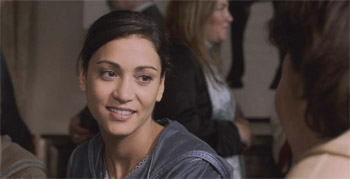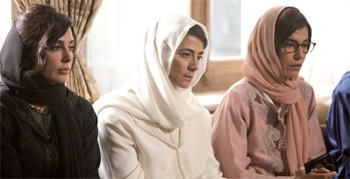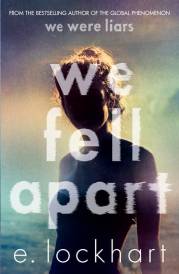Morjana Alaoui Rock The Casbah Interview

Morjana Alaoui Rock The Casbah Interview
Cast: Nardine Labaki, Morjana Alaoui, Lubna Azabai, Hiam Abbass, Omar Sharif
Director: Laila Marrakchi
Rated: M
Running Time: 98 Minutes
Synopsis: Summer in Tangiers, Morocco. A family reunite for three days in their home following the death of their patriarch, the influential businessman Moulay Hassan (film legend Omar Sharif), to share their memories and to grieve for his loss according to Muslim tradition. They have left the beach behind and swapped swimsuits for djellabas as everyone gathers in a show of mourning.
However, sparks start to fly when prodigal daughter Sofia jets in from New York after several years away. The youngest, she has made a new life for herself as an actress in America, but frustratingly, only ever gets television roles as a terrorist. Her return provides the opportunity to settle some scores with her sisters, as the order once maintained by Moulay breaks down.
Between laughter and tears, a collective hysteria leads each of the women to confront some home truths that have boiled beneath the surface for years.
Rock The Casbah
Release Date: November 20th, 2014
Interview with Morjana Alaoui
Question: Rock The Casbah is inspired by a family event that you experienced with your cousin, Laïla Marrakchi. What was your initial reaction upon reading the script?
Morjana Alaoui: Laïla told me about the idea before it had been written, but I admit I was a bit surprised when I discovered the first version, since there were so many similarities with events that took place during my grandfather's funeral. Over time, the script evolved. It shed our family history and took on its independence. I began to think of Sofia as a real character and no longer as the replica of the woman I could have been. I tried to construct her a long way from my personal memories, and carve out a path for her of her own. That was the challenge for me.
Question: There are some major similarities between the character of Sofia and you: like her, you left to try your luck in Hollywood, and you came up against the clichés which Arab actors often have to face.
Morjana Alaoui: I didn't stay very long in Los Angeles. I really haven't got time to deal with the clichés which Sofia suffers from playing roles linked to her origins. I had to cut short my stay there to shoot Pascal Laugier's film, MARTYRS. That film really allowed me to move beyond the stereotypes within which actors from North Africa are too often confined. To me, the important thing is not that Sofia lives in Los Angeles – she could just as easily live in London or Paris. What's important is that she decided to go and live far away to realize her dreams freely and independently of her family.
Question: Is that what pushed you to leave your country?
Morjana Alaoui: Yes. As soon as I'd graduated from high-school, even before I'd decided to become an actress, I knew I'd leave.
 Question: How would you describe Sofia?
Question: How would you describe Sofia?
Morjana Alaoui: She's a woman who's suffering. She didn't receive her father's affection and wasn't acknowledged by her family. None of her choices has been vindicated. Her career hasn't taken off as she'd hoped, her marriage isn't a very happy one – her husband puts work before everything and she finds herself raising her child alone. She lives in great solitude and can't admit her failings to herself. Despite that, I see her as an extremely courageous person. She's a fighter.
Question: One has the feeling that these few days spent with her family, who she hasn't seen for years, have transformed her.
Morjana Alaoui: She becomes reconciled with herself. She matures.
Question: How did you prepare for the role?
Morjana Alaoui: I tried to compose a Sofia who was as far as possible from myself, whilst at the same time drawing on what Laïla and I had experienced. To achieve this, I worked extensively beforehand with an American coach, Robert Burns, with whom I met regularly in Paris. Together, we strived to get to know her better. For example, we thought a lot about the relationships that she might have had with her dead sister, and who served as a model for Sofia. We also thought about the remoteness she feels vis-à-vis her family. Back in Morocco, Sofia realizes that her position isn't exactly the same, and that her departure caused a lot of sadness. She's unsettled by this. These little details allowed me to arrive for the shoot totally at ease.
Question: Tell us about the other women in the film.
Morjana Alaoui: They are all struggling against their situation, but are not all confronting their problems in the same way. Sofia does it in a frontal manner. In her own way, and despite being torn between tradition and modernity, the character of Kenza also has a great honesty. The others are more living a lie: Miriam in her obsession about appearances, the mother and Yacout, the nanny, in the spirit of sacrifice typical of women of their generation. In this family, only the grandmother is truly liberated. She is the most modern of all of them, the only one in whom Sofia can really confide; the only one who understands. In Morocco, women are becoming liberated, they have more expectations, but things remain difficult. Laïla recreates this very well in the film: with the father gone, you can see that they speak more freely – they are no longer under his control.
Question: You mentioned your grandfather. Did you use to live under his authority?
Morjana Alaoui: Yes and no. My parents were quite modern. In any case, I was always treated on an equal footing with my brother. It would have been hard for me to get the idea that he was superior to me. I didn't grow up with this kind of taboo.
Question: In Rock The Casbah, apart from the patriarch who is being buried, the men take something of a back seat.
Morjana Alaoui: Laïla doesn't put the spotlight on them. In the film, it's the women she's interested in; the men are low-profile. Their job is to deal with the dead man's body and take it to the cemetery.
Question: The character of Zakaria is in contrast to the others.
Morjana Alaoui: He is as isolated as Sofia. He was in love with her sister who died and is her only ally in this family. It's with him that she finds the answers she's looking for.
Question: MAROCK was your first film as an actress and the first feature film that Laïla Marrakchi directed. Eight years later, what was it like being reunited on a set?
Morjana Alaoui: I'd worked with other directors, so I felt more confident. Meanwhile, Laïla had matured. We now each have our own way of working. The fact that we belong to the same family is sometimes a great advantage because we know and understand each other better.
Question: You mentioned earlier how the first version of the script was close to your own story. Now the film is completed, do you still have that feeling?
Morjana Alaoui: The film exists now in its own right and Sofia now has her own existence. It provides a view of Morocco that we don't usually see. Laïla has the art of capturing moments of truth.
Rock The Casbah
Release Date: November 20th, 2014
MORE





